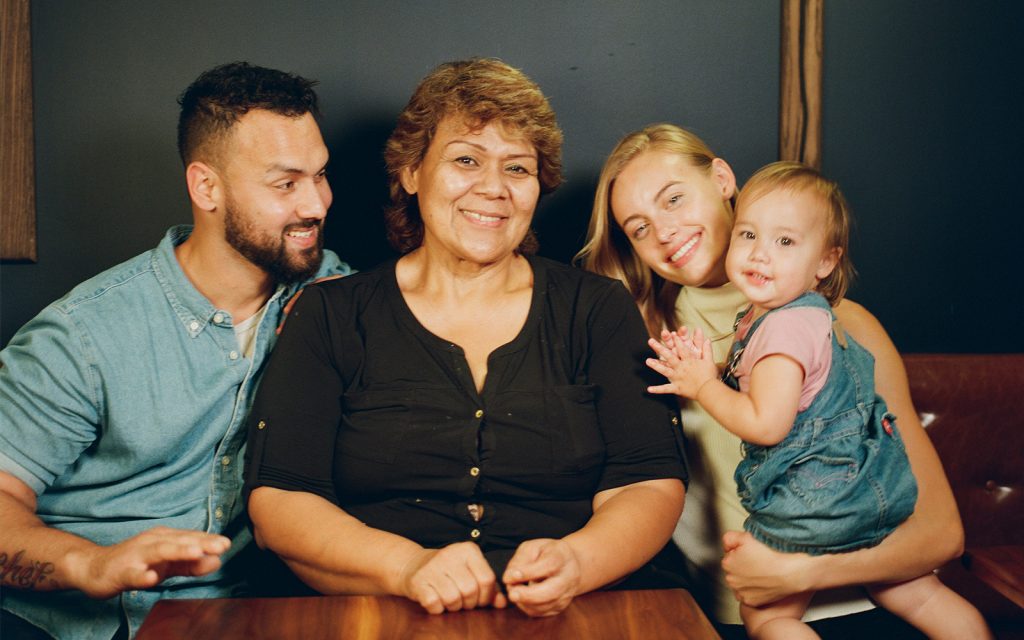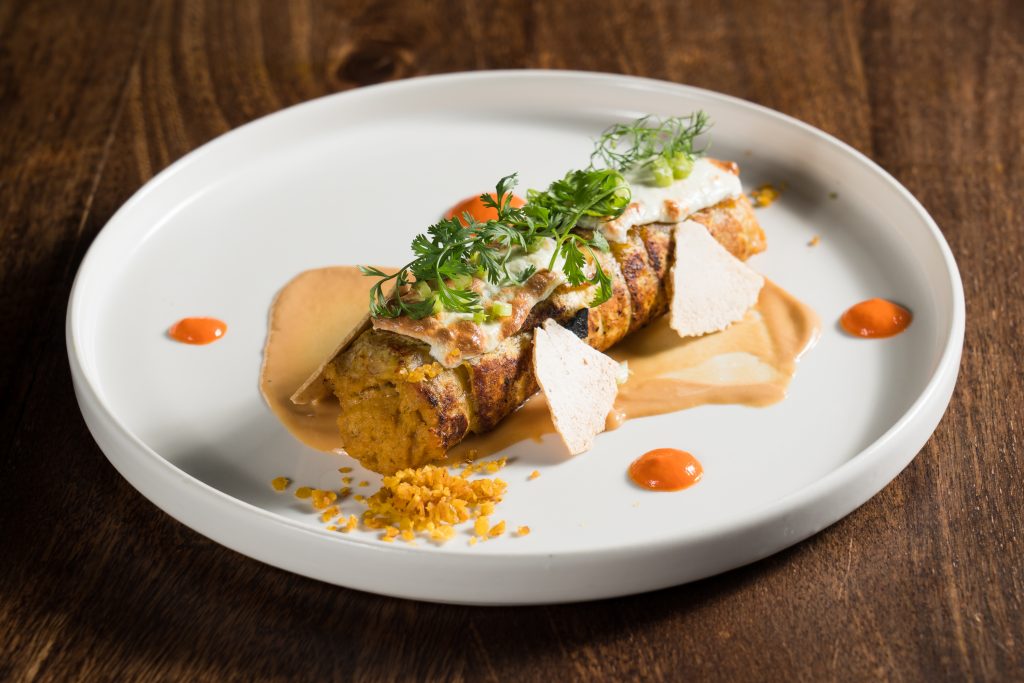Casa Ora Typifies the Uniqueness of Venezuelan Cuisine and Culture
Helmed by mother-son duo Ivo and Isbelis Diaz, the new Williamsburg restaurant educates, delights and donates

There’s a palpable warmth that permeates every inch of Casa Ora, a new Venezuelan restaurant in Williamsburg. That feeling extends from the decor choices to the food that’s served, and it all comes courtesy of mother-son duo Ivo (a Nomad alum) and Isbelis Diaz—Venezuelan immigrants and the duo in charge of their all-Venezuelan kitchen staff. The menu—which consists of well-known favorites (arepas) and lesser-known treats (baby shark)—is the culmination of a collaboration with chef Luis Herrera, the former Sous Chef at both Cosme and Alto.

As such, the restaurant deviates from the blue plate-style service offered at other, more casual Venezuelan restaurants in the city. In fact, Casa Ora aims to be New York‘s first upscale space to offer such cuisine. But, that doesn’t mean that anything on the menu here is out of reach, or out of touch.

“Venezuelan cuisine is not very well known in the US—besides arepas. People usually confuse it with Dominican or Puerto Rican food, which is similar,” Herrera says. “I think it makes it more exciting to be introducing something new to the audience at Casa Ora. And it’s also new to Venezuelan guests because I guarantee you that what we are serving is not what they ate growing up. The flavor is going to take them back for sure, but not what they are seeing on the plates. Introducing varied and elevated Venezuelan food in NYC has been a goal of mine since I arrived to the city seven years ago. That’s why I think this project is so important.”
 Herrera’s sentiment affirms a suspicion plenty have considered: does the typical diner know much about Venezuelan cuisine or culture? “Venezuelan people are happy people. The news doesn’t reflect that, but we want our restaurant to,” Diaz adds.
Herrera’s sentiment affirms a suspicion plenty have considered: does the typical diner know much about Venezuelan cuisine or culture? “Venezuelan people are happy people. The news doesn’t reflect that, but we want our restaurant to,” Diaz adds.
“Casa Ora and my food represent the best side of our culture and our way of life. Venezuelans are very outgoing, caring and warm people—as are most Latin Americans. We like to party and have fun. It is very frustrating and sad that our country has been going through this situation for so long. But even with all this chaos we still manage to keep our heads up and keep spreading our culture the only way we know how to: through hospitality and food,” Herrera says.

On the menu, guests will find dishes like Asado Negro (braised short-rib with burnt papelón sauce, yucca, pickled papaya, peanuts and mint), Bollitos Pelones (corn dumplings with ground beef and tomato sauce), Mousse de Parchita (passionfruit mousse and jelly), and plenty of variations of other popular small plates—arepitas, empanadas, and tequeños included.

“Venezuelan cuisine’s repertoire is very extensive and it varies a lot depending on the region as we have coast (the largest Caribbean coast), mountains (the Andes), meadows and jungle (the Amazon). In summary, the flavor profile is sour and sweet with heavy utilization of corn, cassava and plantain,” Herrera continues. “Unlike Mexican cuisine which is more pre-Hispanic, Venezuelan food is marked by colonialism, so we use both European ingredients and techniques and we even have Indian influence in our food because of the proximity with Trinidad.”
The experience of eating at Casa Ora proves not only delicious but educational, too. Guests are encouraged to taste joyously through a tour of the owners’ native nation, but also acknowledge the socioeconomic and political crises occurring there.

“I do think it’s crucial for restaurants or any other kind of business profiting from Venezuelan culture to give back to our country that’s very much in need. It’s the least we can do,” Herrera explains.
Restaurants are meant to nourish people, and I wanted to extend that beyond our guests. I wanted our nourishment to go back to the culture that inspired the restaurant itself
“We have to do good with our skills, and my skills are in the hospitality industry. Restaurants are meant to nourish people, and I wanted to extend that beyond our guests. I wanted our nourishment to go back to the culture that inspired the restaurant itself,” Diaz says.
Beyond contextualizing the country’s cuisine, the restaurant also forged a partnership between their Williamsburg staff and Fe y Alegria—a Venezuelan non-profit based in Colombia—to share a portion of their profits with families that are forced to seek asylum elsewhere due to the lack of basic resources like food, clean water, and general government protection.
Images courtesy of Casa Ora












